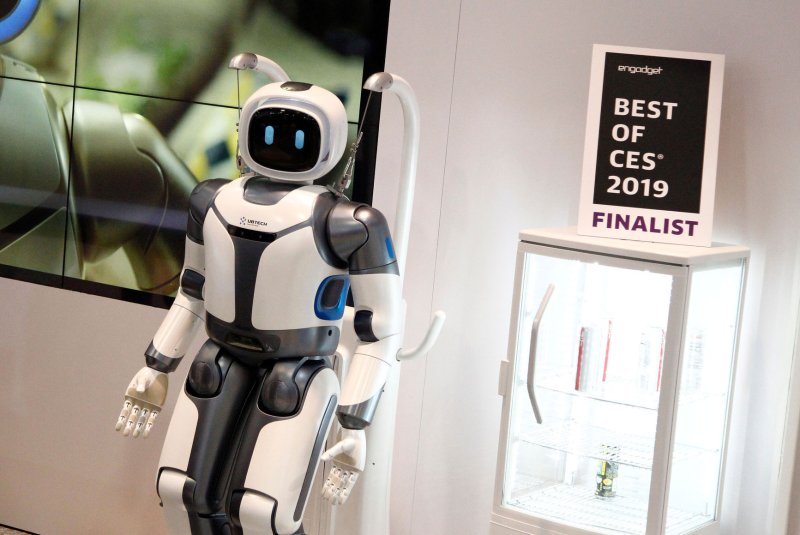A new study by Oxford Economics predicts the number of robots could reach 14 million in China alone by 2030. Photo by James Atoa/UPI |
License Photo
June 27 (UPI) -- The rise of robots, artificial intelligence, energy storage, automation and machine learning could eliminate 20 million manufacturing jobs by 2030, a new study by Oxford Economics found.
Robots are steadily gaining traction in specific segments of the service economy, from baggage handling in airports to loading inventory in warehouses.
"The number of robots in use worldwide multiplied threefold over the past two decades, to 2.25 million," CEO and chief economist for Oxford Economics Adrian Cooper said. "Trends suggest the global stock of robots will multiply even faster in the next 20 years, reaching as many as 20 million by 2030."
The so-called "great displacement" could have a great effect on jobs in developing countries.
"As a result of robotization, tens of millions of jobs will be lost, especially in poorer local economies that rely on lower-skilled workers," the authors of the study said. "This will therefore translate to an increase in income inequality."
Despite the threat of job losses, the report doesn't encourage lawmakers to prohibit the rise of automation.
"These findings should not lead policymakers and other stakeholders to seek to frustrate the adoption of robot technology," researchers said. "Instead the challenge should be to distribute the robotics dividend more evenly by helping vulnerable workers prepare for and adapt to the upheaval it will bring."
On the plus side, businesses will find new efficiencies that will boost productivity, leading to a 5.3 percent boost in global GDP. A 1 percent increase in the stock of robots per worker in the manufacturing sector leads to 0.1 percent boost to output per worker.
"This equates to adding an extra $4.9 trillion per year to the global economy by 2030 (in today's prices) -- equivalent to an economy greater than the projected size of Germany's," Cooper said.















